By Kira Greenfield
A team is a group of individuals who join together to perform a task that would be difficult or impossible to accomplish alone. Life is full of constant situations that require teamwork.
The key aspect that allows teams to become efficient and effective is trust. Trust is built upon consistency, honesty and connections.
Sports, classroom projects and business situations all consist of multiple individuals using their combined power physically and mentally to problem solve. The key aspect that allows teams to become efficient and effective is trust.
Trust is built upon consistency, honesty and connections. Teammates who can trust and rely on their counterparts band together to form a cohesive unit that accomplishes their tasks quickly and thoroughly. When individuals on a team create situations that intentionally cause embarrassment, harassment or ridicule and risk emotional and/or physical harm to other members they are participating in an act of hazing. (Hazingprevention.Org) These actions can range from minor humiliation and discomfort to assault and even death. A team affected by hazing has a toxic atmosphere that is unable to foster trusting relationships. Without those relationships, teammates cannot depend on each other and improve as a unit.
On athletic teams, I have always been told that there is a ladder you climb as you grow older and gain more experience. Upperclassmen say “you have to pay your dues,” and “I went through the same thing when I first joined the team.” Instead of looking towards these older teammates as mentors and role models it becomes a battle between excluded members to become part of the main clique. When a team exhibits hazing activities, members are no longer focused on improving skills and sportsmanship. Instead, they are concentrated on moving up in the team hierarchy, hoping to escape the possible humiliation. This experience is at a minimum mentally draining and potentially physically harmful.
Successful teams are aware of the signs and symptoms of hazing. The key to eliminating hazing is education. States, schools, athletic departments, coaches and athletes need to be armed with knowledge in order to defeat hazing. When one athlete attempts to stand up to these acts of hazing they can instead become the focus of the situation. If athletes and coaches can establish a supportive environment, discussions can be easily started to stomp out hazing. In order to unite we need to become transparent within teams by establishing clear boundaries and repercussions in response to any hazing activities.
Athletics have taught me that wins and losses do not define you, but how you react and chose to carry yourself afterward does. The teams I have played on have had more losses than wins. These “failures” may have done more for me than winning could have. They taught me perseverance. I pushed through tough games, mental obstacles, and physical limits. I also pushed through team conflicts. Loss after loss can leave a team with a bitter feeling as they begin to point fingers and establish blame. With guidance from coaches and team captains, we have been able to have peaceful conversations where we share our constructive criticism. This has allowed for tensions to dissipate and relationships to form between experienced players and newer members as they share knowledge and understanding.
Inclusive team activities can help to displace feelings of unease when members are joining a team or experiencing a rough patch. Unity and trust within a team allows for an enjoyable experience of learning and improving. By educating athletes, coaches and other supporting members on hazing and its negative effects we can stomp it out completely.
About the Author
Kira Greenfield was the third-place winner of the National Federation of State High School Associations and HazingPrevention.Org High School Essay Contest for 2018 and comes from Columbia Heights High School, MN.


